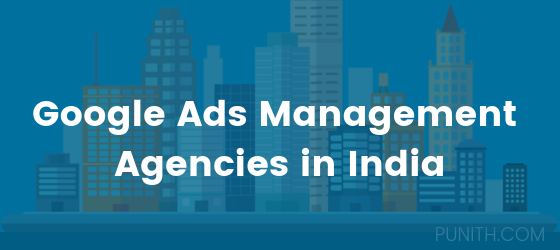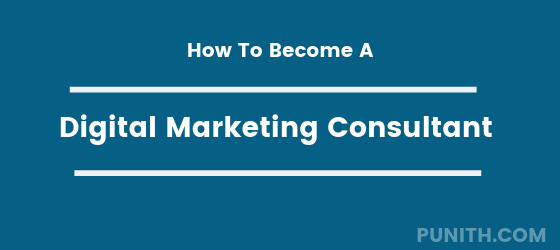When people need information, their first step is often to turn to the internet and fire up a search engine. Advertising agencies may still recommend using print media, but if your company has any kind of web presence, using search engine marketing services will help you be seen on the web.
What is Search Engine Marketing
Marketing via search engine can include random “luck of the draw” results, or weighted – also known as “sponsored” – results, which come from paying for search engine placement. Internet advertising specialists refer to these two types of results as either “organic” or “inorganic.”
Organic results, are based on keywords found within the text of websites, including the title and meta tags. Advertisers who want their sites to pop to the top of search result lists often use search engine optimization, or specific keywords peppered throughout their content, to achieve more favorable placement
Inorganic results are not free. They are the direct result of buying placement from the search engine company itself. Statistics on various internet advertising-related websites show that more users click on organic (unsponsored) links than on sponsored links, but those sponsored links also pay for the search engines themselves, so without them, fewer organic links would be available.
Types of Search Engine Advertising
While there are many variations of online advertising in general, search engine advertising generally falls into one of two categories, paid placement, and pay per click, or ppc.
Paid Search Engine Advertising
Just as newspapers sell advertisements which pay for their day-to-day operations, so do search engines sell listings. Search engine marketing services represent advertisers, and buy search agent placement. Internet advertising of this sort comes in two different types:
• Paid Placement listings are usually separated from the organic search results, and often labeled as “sponsored” links. Advertisers contract with search engine marketing services to buy guaranteed high rankings, usually in relation to specific keywords. Paid placement listings are generally at the top or at the bottom of the search results page.
• Paid Inclusion does not include a ranking guarantee. Instead, website owners pay search engines simply to ensure that their pages are included in searches. This is especially useful with new pages, if the site owner doesn’t want to wait for a spider (automatic web-crawling software) to find and index their page, or if there are internal pages they wish to be found.
PPC Search Engine Advertising
In addition to simply buying placement, a more advanced form of search engine advertising is pay-per-click, or PPC, search engine advertising.
Briefly, PPC is less risky for advertisers, because they only have to pay when someone actually clicks on their ad. It’s commonly used in general internet advertising – most banner ads are part of some sort of PPC campaign – but has been gaining popularity with search engine marketing services.
How to Use PPC Advertising
Once you and your search engine marketing service provider have decided to use a PPC search engine advertising campaign, you must select an ad network. Known as pay per click search engines, or PPCSEs, these are companies, they specialize in selling advertising space, based not on square inches, or number of pixels, but on specific keywords, which you bid upon. The two largest PPCSEs operating today are Google Adwords or Yahoo! Overture, but MSN offers such services as well.
• Google Adwords: Google’s program includes a price break for those ads which are clicked on most frequently, as well as extremely stringent quality control. As the largest of the PPCSEs, it offers the most exposure as well as specific geo-targeting (so that ads are shown to the right regions), and multi-lingual support.
• Yahoo! Overture: Overture, which was purchased by Yahoo! in 2003, is also an excellent choice, as it provides top-of-page placement on Yahoo!’s pages, and also disseminates it’s listings to Alta Vista and MSN. In addition, Yahoo! Overture has human editors who read all add submissions and verify that they meet guidelines.
Whichever of the pay per click search engines you select, it is important to know that most have a $100 maximum bid for each keyword, and that all are completely scalable. In theory, if you had a budget of only $5.00 / day, you could use PPC search engine advertising. In fact, many marketing experts joke that all it takes is a website and a credit card.
It’s All About the Keywords
To benefit from search engine advertising, it is essential to have the right keywords. Search engine marketing services will provide you with an SEO (search engine optimization) consultant, who will use Google and Overture, and probably also Wordtracker.com, as well as any internal proprietary software, to help find out which words are most often used when searching for your product. They do this, in part, by searching for your product, and seeing which words and search phrases bring the most results.
If the SEO consultant and your search engine marketing service is reputable, they will advise you against getting involved in bidding wars over the “perfect” keyword. Instead, you must find less obvious multiple-word phrases (generally two or three words), which may not even be listed by the keyword suggestion sites. In addition, checking the statistics for your website can also guide you, as it will show you which search phrases are already bringing traffic to your website. (You will also be cautioned about selecting words that are extremely obscure, even if they may be highly profitable, because the PPCSEs have rules against their use.)
ROI – Knowing if it’s Workings
Once you have bid upon the best keywords for your business, and had your search engine marketing service guide you through writing and placing your advertising text, you cannot just sit back and relax. You need to make sure your links are being seen, and getting traffic. But how?
Various tracking tools exist to help analyze the traffic statistics from your ad, all of which combine to give you your ROI – return on investment. (Put more simply, ROI represents your bottom line – it’s the money you make factored against the money you spend on advertising.)
Google’s Adwords program has an integrated tracking utility called Google Analytics which reports statistics on where your traffic came from, by source page and search term, and Yahoo! Overture has its own utility as well, simply referred to as Conversion Counter.
Third party tracking tools are also available, with each offering the same core statistics. Prices vary from free (limited personal use) to about $300, and title include Mindsolve, Captools, Trackpoint.
Whether you attempt to buy search engine placement on your own, or do all your internet advertising with the help of search engine marketing services, the ease of use and total scalability of search engine advertising makes it a viable advertising alternative for any business.



![All You Need To Know About AMP [Accelerated Mobile Pages]](https://www.punith.com/wp-content/uploads/2018/08/amp.jpg)
0 Comments